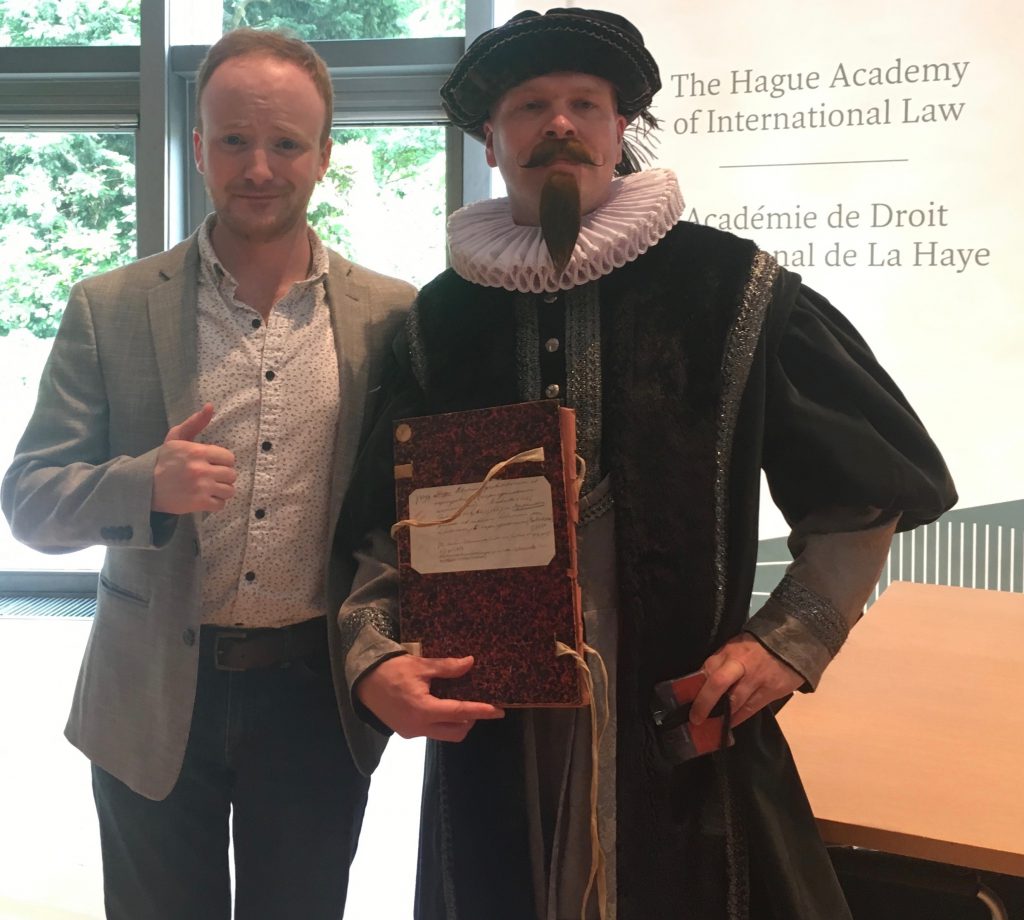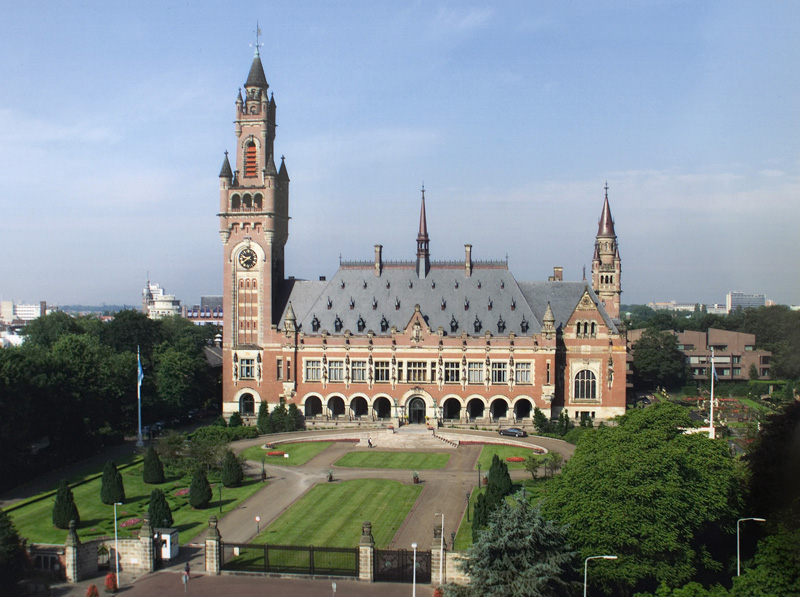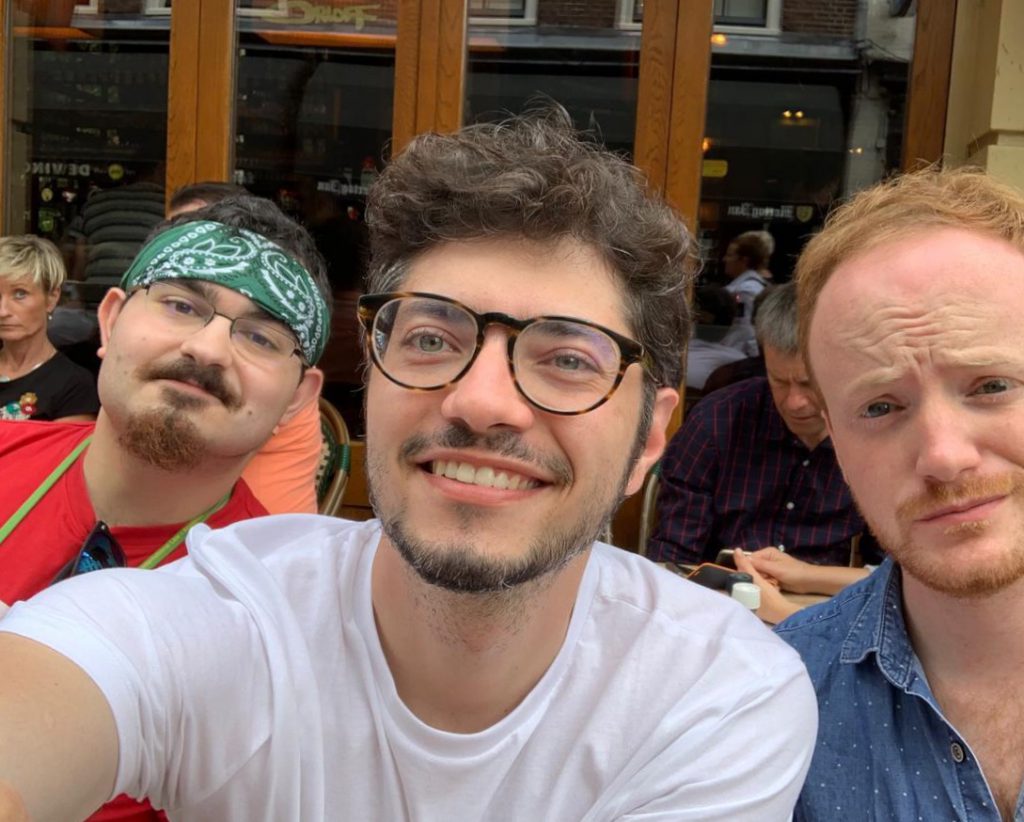By: Michael Gerber
This summer, I traveled to The Hague to spend three weeks studying public international law. I thoroughly enjoyed my experience and am grateful for the generous support of Washington University’s Whitney R. Harris World Law Institute, whose Dagen-Legomsky Fellowship made everything possible.

The Hague is home to the Peace Palace. Known as the Vredespaleis, the Peace Palace was conceived over a century ago as a temple to international peace and justice. The Peace Palace is today the seat of the Permanent Court of Arbitration and the International Court of Justice. In addition, the Peace Palace harbors the Hague Academy of International Law, a premier educational institution whose famous summer courses began training international lawyers in 1923.
The Hague Academy’s summer courses are divided into two programs: the Public International Law Program and the Private International Law Program. I attended the Public International Law Program, which is the older of the two and is commonly referred to as a rite of passage for anyone interested in the field. The program mainly consists of a series of morning lectures by law faculty from universities around the world as well as guest lectures by expert practitioners such as Judge Peter Tomka of the International Court of Justice. Lectures cover a wide range of topics and are given in either English or French, although it is not necessary to know both languages because the Academy provides simultaneous translations. The program also encompasses optional afternoon activities, which include embassy visits and trips to international courts and tribunals.

Approximately 300 students participate in the Public International Law Program. The students come from more than ninety countries and include a mix of young professionals, many of whom are nearing graduation or have just graduated. The student body testifies to the Academy’s commitment to fostering a truly diverse international experience. The President of the Academy, Yves Daudet, highlighted this commitment on the program’s first day with the following remark: “What is internationalism? It’s you.” I wholeheartedly agree, for everyone I met at the Academy was incredibly friendly and eager to share their experiences. Exchanges are not limited to the classroom, however. Most students rent accommodations at the Skotel, which consist of shared two-person bedrooms in a comfortable sixteen-person flat. During the school week, students typically return to their flats in the evening for a shared dinner and then go out and explore the city. Students spend weekends either in and around The Hague, whose markets and museums are a major attraction, or in neighboring cities such as Amsterdam and Rotterdam. Travel is easy thanks to a well-developed public transit system that makes it possible to venture almost anywhere in the Netherlands and beyond.
It is important to note that the Peace Palace is a fully functioning workplace that continues to decide legal matters of global significance. This became especially apparent to me toward the end of my studies when the International Court of Justice issued a verdict on the Jadhav Case, which concerns an ongoing dispute between India and Pakistan over the pending execution of an alleged spy. Although I was unable to attend the announcement in person, being present at the Peace Palace that day made me realize the importance of international law and the pressing need to use it to resolve difficult disputes amicably.
Looking back on my experience, I feel I received valuable academic instruction and, more importantly, made lasting friendships and memories, which I hope to never forget.

